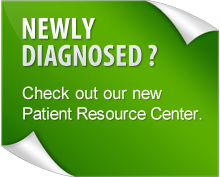Treatment
Treatment requires a multi-disciplinary approach which most often encompasses medical and pharmacological modalities as well as physical therapy, exercise therapy, and family caregiving/chronic illness/counseling.
There is no magic pill or cure for these conditions. The recovery process will involve all of the above modalities along with determination from the patient, time for treatments to take effect, and persistence from all involved.
Due to the unique nature of these conditions, it is best that patients talk to their physician about their particular form and medical outcome. Misinformation should be avoided as it can be harmful to patients medically as well as emotionally. We strongly encourage all patients and families to obtain accurate, reliable information from their doctor.
Treatment is based on the condition, the sub-type, and the patient specifics and must be individualized.
Treatment usually includes pharmacological and non-pharmacological methods.
Fluid intake of between 2 - 4 liters a day along with an increased sodium intake of 4 - 5 grams is often recommended (check with your doctor for specific recommendations in your particular case). These two self-help measures work together to increase the patient's fluid volume which helps to improve blood flow.
Caffeine is not usually well tolerated by youth onset patients. High sugar drinks and artificial sweeteners should be avoided. Various medications are commonly utilized to assist with symptom relief and each medication is fine tuned to the particular patient. Medications will usually take time to work and also typically require ongoing adjustments and adaptations as the patient physiologically changes and as the condition phases.
The goal is to be able to obtain enough symptom relief to initiate a physical conditioning/strengthening program. Physical conditioning/strengthening will help compensate for the faulty autonomic system. It is an essential aspect of the recovery process and can be an extremely frustrating and arduous process. Patients must develop a determined mind-set to persevere in spite of the challenges.
Prognosis
Research is being conducted at the nation's leading medical institutions (Cleveland Clinic, Johns Hopkins, Mayo Clinic, Medical University of Ohio, National Institutes of Health, NY Medical College, Vanderbilt Medical Center and others). It is exciting and revolutionary, and there is tremendous hope for patients.
The statistics demonstrate that with perseverance, proper medical treatment, proper life-style management and adherence to self-help techniques, the majority (estimated to be 90%) of youth onset patients will fully recover or improve significantly by the time they reach their early to mid-20’s (if not sooner). Patients who do not fully recover will typically see great improvement of their symptoms upon reaching full growth maturity (mid-20's). Some patients may see a return of symptoms at various times in their lives (such as during pregnancy, the onset of menopause and during any major medical stressor). It must be recognized that while seemingly impossible to severely impacted patients, physical activities which promote blood flow are absolutely necessary to the recovery process. A qualified physical therapist can be quite helpful.





